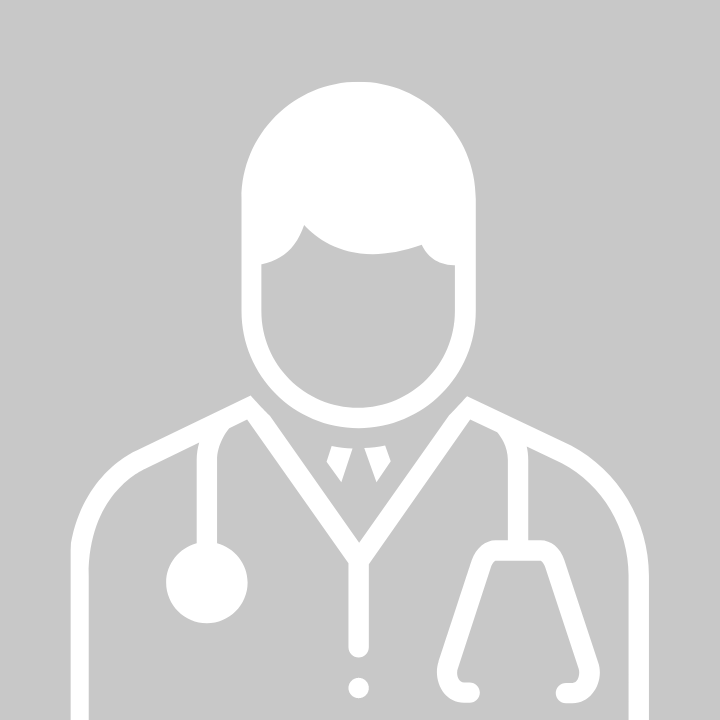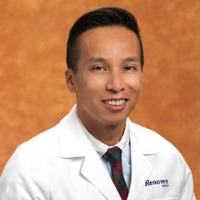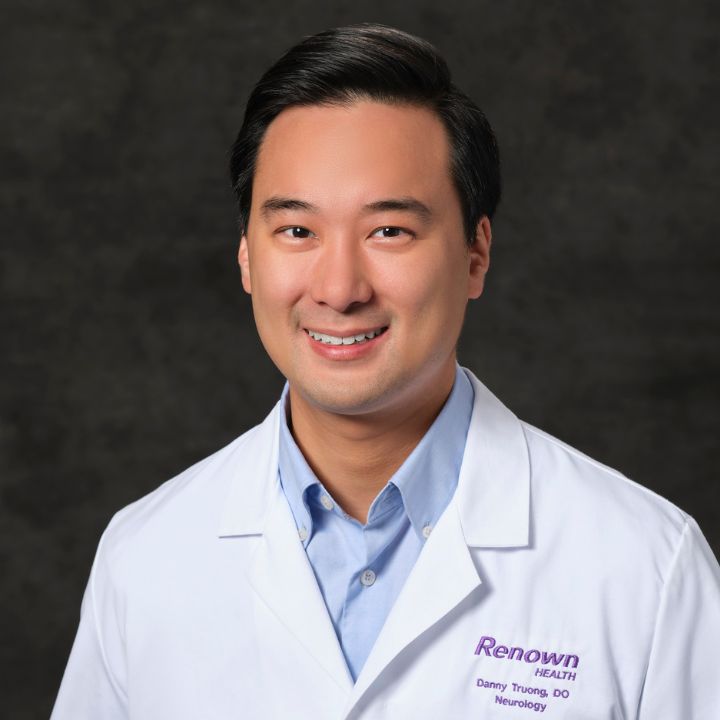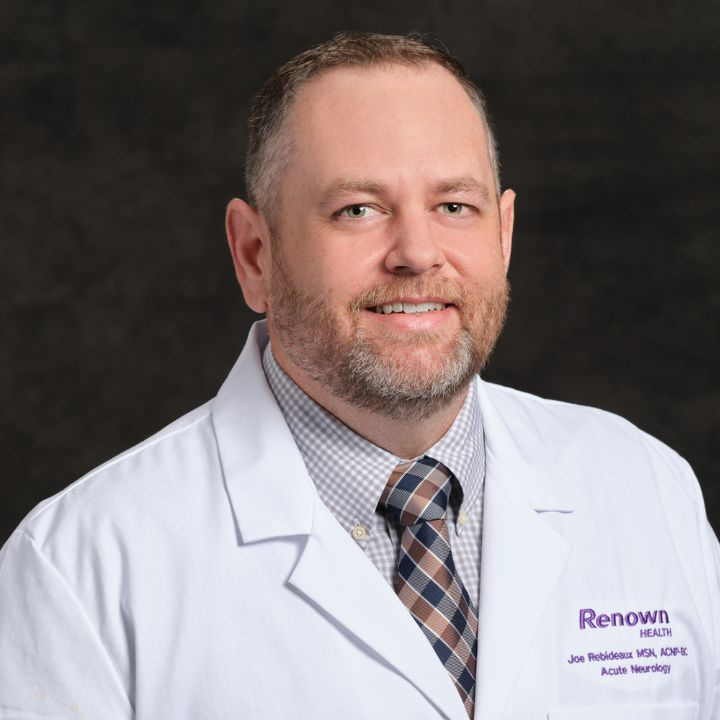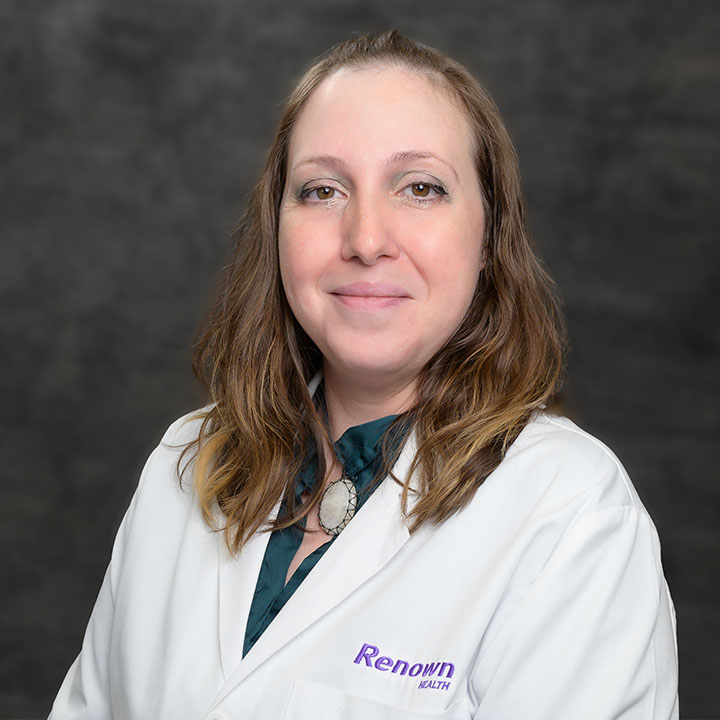Search
Results for 'neurology'
Clear-
Powerlifting through MS Diagnosis
When Tabitha Cox received a diagnosis of multiple sclerosis (MS), she was in shock, denial and felt that she was too strong for something like this to be happening to her. As the disease progressed, Tabitha realized she needed to do what she could to stay as healthy as possible. “I heard, ‘You have a quarter-size lesion on your brain,'” recalls Tabitha Cox. “At that moment, that was literally all I heard come out of her mouth.” Tabitha’s official diagnosis was multiple sclerosis (MS), an unpredictable, often disabling disease of the central nervous system that slowly debilitated her mom. “I was numb,” says Tabitha. After her diagnosis, Tabitha went on with her life as if the disease was nothing more than a doctor’s diagnosis. However two years later, Tabitha realized something wasn’t right and sought care at Renown Institute for Neurosciences – Brain and Nerve Care. Her form of MS was aggressive, and her doctor recommended treatment right away.
-
Keeping Your Brain Healthy, No Matter Your Age
It’s true there is no cure for dementia, yet studies suggest your life choices today can reduce brain decline in the future. How important is diet to brain health? Food is the foundation of your body. Fats, carbs and protein provide the energy for your cells and metabolism. So the quality and amount of food you eat directly affects your brain. Specifically, researchers are paying special attention to the link a high sugar diet and/ or an unhealthy fat diet may have on your brain. Your brain on sugar According to the Alzheimer’s Association, when too much sugar is in the bloodstream for long periods of time, it can damage the brain cells. Many people with diabetes may develop brain abnormalities, and these changes may increase chances of dementia — research is still being done to understand this connection. Many U.S. adults have prediabetes with blood sugar higher than normal. Insulin resistance often leads to diabetes. Insulin resistance has been linked to metabolic syndrome, which is a precursor for cardiovascular and cerebrovascular disease (heart attack, stroke). Some signs of metabolic syndrome include: Large waist size (40 inches or more for men, 35 inches and up for women) Low HDL (good) cholesterol level Higher than normal blood pressure — 130/85 and above Current research suggests too much sugar in the blood causes inflammation, which can damage brain cells. High carbohydrate foods, such as sweetened beverages, chips, white rice, white potatoes, bagels, cereals and desserts, have been shown to raise blood sugar. Although anyone can get diabetes, Hispanic Americans and African Americans are at greater risk.
Read More About Keeping Your Brain Healthy, No Matter Your Age
-
Physician-Pediatric Neurology
Full Time - Eligible for Benefits510701 AdministrationDay -
Parkinson's Disease Know The Important Symptoms
Parkinson’s disease – you may have heard of it because Neil Diamond and Ozzy Osbourne were recently diagnosed with it. Or perhaps you know Michael J. Fox is a strong advocate and funds research through his foundation. Neurologist Jonathan Spivack, MD, discusses this disease, while physiatrist Stephanie Jones, DO, explains how physical therapy can help as a supplemental treatment. According to the Parkinson’s Foundation about ten million people worldwide currently have this disease. What is Parkinson’s Disease? “Parkinson’s disease is a neurodegenerative disease that progresses slowly and definitely, though at variable rates,” explains Dr. Spivack. “Symptoms go beyond the classic motor changes. It results from a loss of specific dopamine-producing brain cells. Specifically, this loss is likely due to a mix of genetic and environmental factors,” he adds. Dopamine allows communication between particular nerve cells responsible for movement. If you have Parkinson’s dopamine levels gradually drop, causing a loss of motor skills. Generally, most patients with the disease are over age 65. Early Signs and Symptoms Diagnosing Parkinson’s can be difficult as some of the symptoms happen during the natural aging process. The Parkinson’s Foundation identifies the following 10 early signs of PD: Tremors or shaking of your hand, fingers or chin Small handwriting Loss of smell Sudden movements during sleep Stiffness when walking or moving Constipation Softer or lower voice volume Mad facial expression Feeling dizzy or faint Hunching or stooping posture A single sign may not point to the disease, but if you (or a loved one) has multiple signs, talk to your healthcare provider.
Read More About Parkinson's Disease Know The Important Symptoms
-
Renown Nationally Recognized for Providing High-Quality Stroke Care With Three American Heart Association Recognitions
The Renown Neurovascular and Stroke Program and Renown Rehabilitation Hospital teams provide expert emergency stroke care and comprehensive neurovascular care and rehabilitation services. The American Heart Association presents Get With The Guidelines®- Stroke Gold Plus awards for proven dedication to ensuring all stroke patients have access to best practices and life-saving care. Renown Health emergency, medical and surgical providers have received three American Heart Association’s Get With The Guidelines® awards. These awards demonstrate commitment to ensuring stroke patients receive the most appropriate treatments according to nationally recognized, research-based guidelines; reducing disabilities and increasing the number of lives saved. Every 40 seconds, someone in the U.S. has a stroke. Stroke is the 5th leading cause of death in the U.S. and the main cause of adult disability. Studies show patients recover better when providers consistently follow treatment guidelines. Get With The Guidelines puts the expertise of the American Heart Association and American Stroke Association to work for hospitals nationwide, helping ensure patient care is aligned with the latest research and evidence-based guidelines. “A stroke is an extremely serious condition that requires emergent medical treatment. The faster treatment is provided, the lower the risk of brain injury. We are proud of our thousands of physicians, nurses and clinicians who consistently practice exceptional patient care by adhering to the latest treatment guidelines,” said Brian Erling, MD, MBA, President and CEO, Renown Health. “Get With The Guidelines makes it easier for our teams to put proven knowledge and consistent protocols to work on a daily basis, which studies show can help people live longer and better lives.” “As a participant in Get With The Guidelines programs, Renown qualified for the awards by demonstrating that physicians and clinicians across our integrated academic health system are committed to improving quality care for stroke patients,” said Bill Plauth, MD, MMM, CPE, Chief Medical Officer for Renown Health and Associate Dean for Clinical Affairs at the University of Nevada, Reno School of Medicine. “If you or a loved one is experiencing a stroke, call 911, as you need skilled medical care immediately. Stroke care focuses on helping people recover as much function as possible and return to independent living. The Renown Neurovascular and Stroke Program and Renown Rehabilitation Hospital teams provide expert emergency stroke care and comprehensive neurovascular care and rehabilitation services.” “We are incredibly pleased to recognize Renown Health for its commitment to caring for patients with stroke,” said Steven Messe, M.D., volunteer chairperson of the American Heart Association Stroke System of Care Advisory Group and professor of neurology and director of fellowships of neurology at the Hospital of the University of Pennsylvania. “Participation in Get With The Guidelines is associated with improved patient outcomes, fewer readmissions and lower mortality rates – a win for health care systems, families and the northern Nevada community.” Renown also met specific scientific guidelines as a Primary Stroke Center/Comprehensive Stroke Center, featuring a comprehensive system for rapid diagnosis and treatment of stroke patients admitted to the emergency department. “Renown Regional Medical Center is the only designated Comprehensive Stroke Center in northern Nevada,” says Benjamin Pence, DO, Director, Institute for Neurosciences at Renown. “This means that we have the highest level of certification to receive and treat patients with the most complex strokes. Our Institute for Neurosciences team is led by the area's top neurologists, who educate our UNR medical students and residents, as well as conduct research studies involving new ways of preventing, diagnosing, and managing neurological disorders. We care for patients suffering from nerve and brain disorders such as stroke, headache, epilepsy, cerebral aneurysms, and other acute conditions. We also monitor and develop treatment options for patients with memory, neurodegenerative, and movement disorders such as Alzheimer’s, Multiple Sclerosis or Parkinson's Disease.” Renown Health also received the American Heart Association’s Target: Stroke Honor Roll Elite award. To qualify for this recognition, hospitals must meet specific criteria that reduce the time between an eligible patient’s arrival at the hospital (within 60 minutes or less) and treatment for at least 85 percent of applicable patients. “It is an honor to be among the American Heart Association’s Stroke Honor Roll Elite award recipients,” said Bret Frey, MD, president of Northern Nevada Emergency Physicians Care teams at Renown Health. “We adhere to these rigorous guidelines daily and demonstrate our unwavering commitment to ensuring more people in northern Nevada receive leading emergency and trauma care and the gift of extended, healthier lives.” Renown Health also received the American Heart Association’s Target: Type 2 Diabetes Honor Roll - Stroke award, ensuring patients with Type 2 diabetes, who might be at higher risk for complications, receive the most up-to-date, evidence-based care when hospitalized due to stroke. This award is given to hospitals that qualify for the silver level or higher achievement award within the Get With The Guidelines – Stroke program and achieve an overall Diabetes Cardiovascular Initiative Composite Score of more than 80 percent. About Renown Health Renown Health is the region’s largest, locally governed, not-for-profit integrated health care network serving Nevada, Lake Tahoe, and northeast California. With a diverse workforce of more than 7,500 employees, Renown has fostered a longstanding culture of excellence, determination, and innovation. The organization comprises a trauma center, two acute care hospitals, a children’s hospital, a rehabilitation hospital, a medical group and urgent care network, and the locally owned not-for-profit insurance company, Hometown Health. For more information, visit renown.org.


